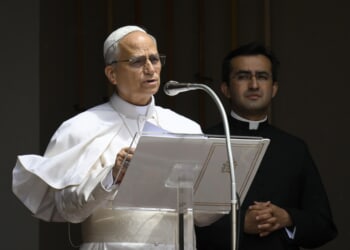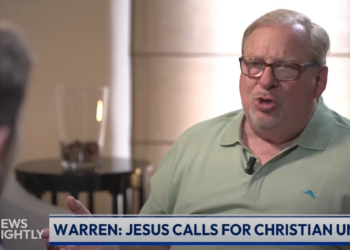Coca-Cola announced Tuesday it will offer both the high fructose corn syrup option and a cane sugar version of Coke in the U.S. after President Donald Trump pressured the brand, the company announced in a Tuesday earnings report.
“As part of its ongoing innovation agenda, this fall in the United States, the company plans to launch an offering made with U.S. cane sugar to expand its Trademark Coca-Cola product range,” Coca-Cola wrote in its second quarter earnings report.
The new cane sugar Coke will debut in the U.S. in the fall of 2025, according to the earnings report.
While the report made no mention of Trump, the president beat the soda giant to the announcement July 17, proclaiming on social media that he convinced them to make the switch. (RELATED: Big Soda Floods State Capitol In Unprecedented Fashion To Lobby Against MAHA)
“I have been speaking to Coca-Cola about using REAL Cane Sugar in Coke in the United States, and they have agreed to do so,” he wrote on Truth Social.
Coca-Cola’s classic Coke brand is primarily made with cane sugar in most European countries, China, India, Indonesia and Mexico, leading some to call the cane sugar version (when it’s imported to the U.S.) “Mexican Coke.”
Coca-Cola maintains that high fructose corn syrup is no worse than cane sugar for consumer health. “It’s safe; it has about the same number of calories per serving as table sugar and is metabolized in a similar way by your body,” the brand wrote on X shortly after Trump’s announcement.
Others, including Health and Human Services (HHS) Secretary Robert F. Kennedy Jr., however, take issue with corn syrup.
Kennedy Jr. previously called the sweetener “a key ingredient in highly processed foods” and a “contributor to childhood obesity.”
Yep, as I’ve said before Warren Buffett’s vertically integrated investments in the production of high fructose corn syrup—a key ingredient in highly processed foods + contributor to childhood obesity—generates massive profits for himself + Bill Gates.https://t.co/TyvwQNh1aE
— Robert F. Kennedy Jr (@RobertKennedyJr) March 8, 2023
Coca-Cola made its U.S. products with cane sugar until the 1980s when, thanks in part to U.S. government corn subsidies, high fructose corn syrup became cheaper.
8/ Our government incentivizes farmers to grow corn, wheat, and soy which fuel the industrial food complex.
Subsidies for these 3 commodities alone are over $200 Billion since 1995. pic.twitter.com/JTc5Ptqizc
— Brett Ender 🥩⚡️ (@MeatMafiaBrett) August 17, 2022



![Former Bravo Star Charged After Violent Assault Using a Rock-Filled Sock in Tennessee Walmart [WATCH]](https://www.right2024.com/wp-content/uploads/2025/07/Former-Bravo-Star-Charged-After-Violent-Assault-Using-a-Rock-Filled-350x250.jpg)



![Illegal Alien Walked Free After Decapitating Woman, Abusing Corpse for Weeks [WATCH]](https://www.right2024.com/wp-content/uploads/2025/07/1753013138_Illegal-Alien-Walked-Free-After-Decapitating-Woman-Abusing-Corpse-for-350x250.jpg)
![NYC Man Snatches Child Off The Sidewalk, Parents Chase Him Down [WATCH]](https://www.right2024.com/wp-content/uploads/2025/07/NYC-Man-Snatches-Child-Off-The-Sidewalk-Parents-Chase-Him-350x250.jpg)
![Man Arrested After Screaming at Senators During Big Beautiful Bill Debate [WATCH]](https://www.right2024.com/wp-content/uploads/2025/06/Man-Arrested-After-Screaming-at-Senators-During-Big-Beautiful-Bill-350x250.jpg)
![Karoline Leavitt Levels CNN's Kaitlan Collins and Other Legacy Media Reporters [WATCH]](https://www.right2024.com/wp-content/uploads/2025/07/Karoline-Leavitt-Levels-CNNs-Kaitlan-Collins-and-Other-Legacy-Media-350x250.jpg)
![Leftists Lose Their Minds After Jason Kelce Celebrates Being an American [WATCH]](https://www.right2024.com/wp-content/uploads/2025/07/Leftists-Lose-Their-Minds-After-Jason-Kelce-Celebrates-Being-an-350x250.jpg)





